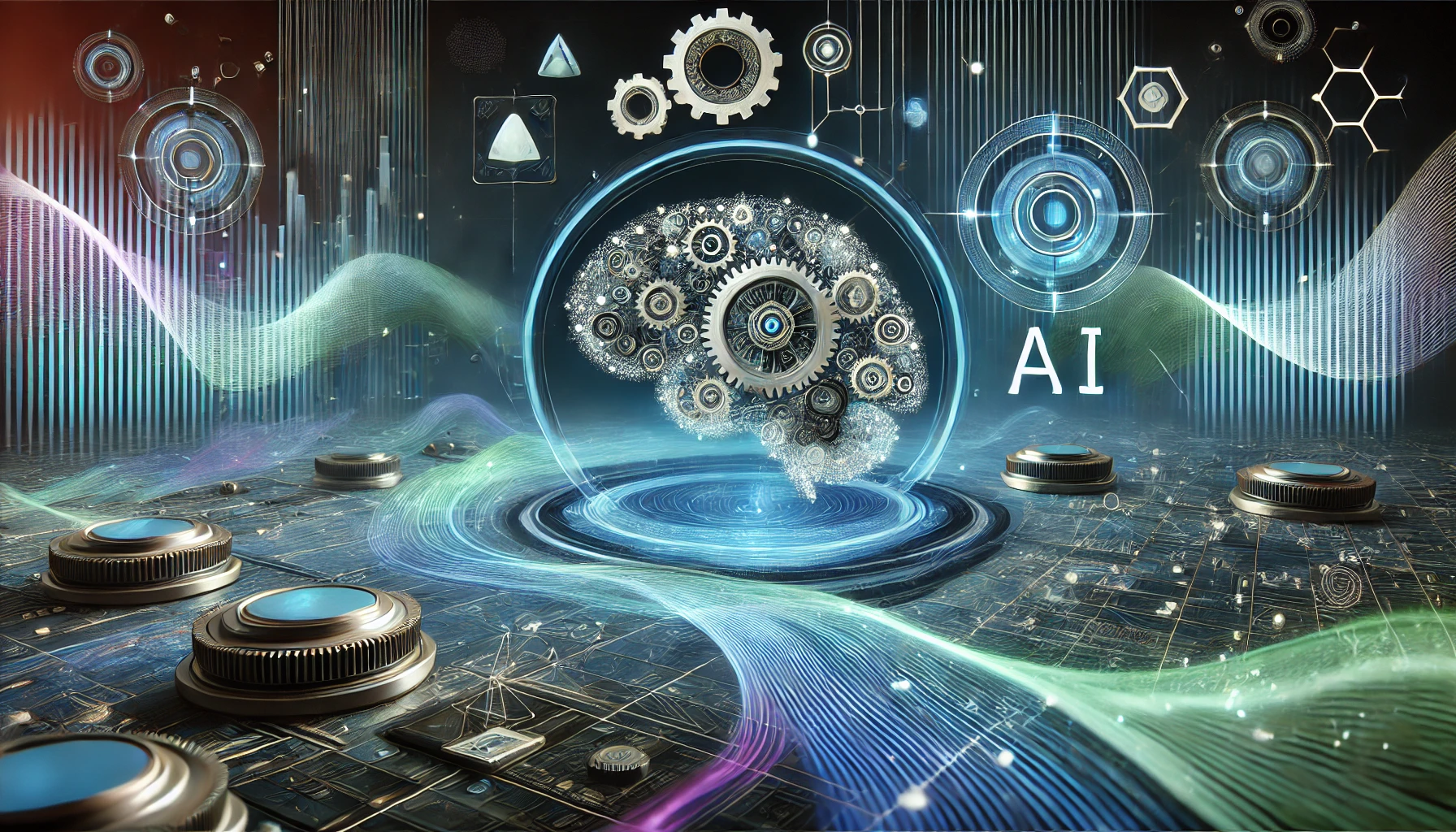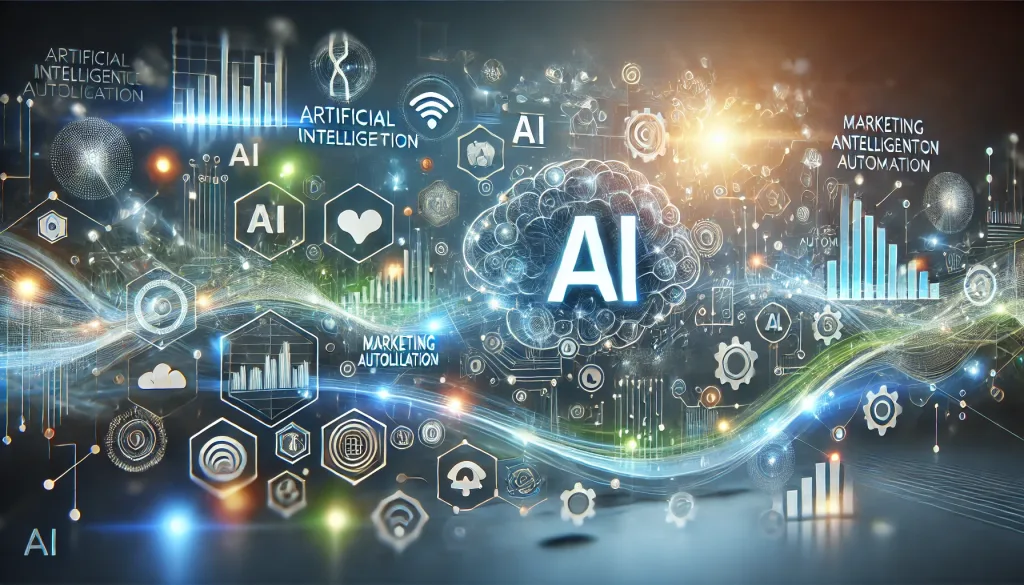
Using Artificial Intelligence for Marketing Process Automation
In the rapidly evolving landscape of digital marketing, artificial intelligence (AI) has emerged as a transformative force, enabling businesses to streamline their operations, enhance customer experiences, and drive better results. This article explores how AI is reshaping marketing by automating processes, from data analysis to personalized customer interactions, making marketing strategies more efficient and impactful. Leveraging AI helps companies improve the accuracy of their campaigns and enables them to engage audiences in ways that traditional methods cannot.
The Role of AI in Data Analysis and Insights
One of the most significant advantages of AI in marketing is its ability to process vast amounts of data quickly and accurately. Traditional data analysis methods can be time-consuming and error-prone, but AI-driven analytics tools can swiftly interpret complex datasets, identify patterns, and predict trends. This capability allows marketers to make informed decisions based on real-time data, optimizing campaign strategies and improving return on investment (ROI). AI tools such as machine learning algorithms and deep learning models can sift through data at unprecedented speeds, revealing actionable insights that help companies tailor their marketing efforts to specific audiences.
AI analytics can even go beyond traditional metrics, like click-through rates and conversions, by analyzing sentiment, behavioral trends, and contextual data. This deeper level of analysis provides a comprehensive view of consumer attitudes and engagement, enabling marketers to refine their approaches continually. Moreover, AI helps eliminate guesswork in marketing, allowing for a data-driven approach that reduces costs and increases the likelihood of campaign success.
How AI Enhances Data-Driven Marketing
AI algorithms enable predictive analytics, which can forecast customer behavior and preferences based on historical data. By understanding these patterns, marketers can tailor their campaigns to meet the specific needs of their target audience, increasing engagement and conversion rates. Furthermore, AI-driven tools can segment audiences more effectively, allowing marketers to personalize content and deliver it at the optimal time, ensuring maximum impact.
Predictive analytics powered by AI doesn’t just support better targeting; it also facilitates trend forecasting and seasonal planning. By identifying likely trends, marketers can prepare ahead of time, ensuring that their strategies align with anticipated consumer preferences. Additionally, this approach allows for rapid adaptation when unforeseen changes arise, as AI models can update in real time based on new data, providing marketers with a competitive advantage.
AI-Powered Personalization in Marketing
Personalization has become a cornerstone of successful marketing strategies, and AI plays a crucial role in delivering personalized experiences at scale. By analyzing customer data, AI can predict individual preferences and behavior, enabling marketers to create highly targeted messages. This level of personalization goes beyond traditional demographic segmentation, as AI can consider factors like past interactions, purchase history, and real-time behavior. Using these insights, companies can deliver unique, personalized content that resonates with each customer, fostering deeper connections and building brand loyalty.
In today’s digital-first world, consumers expect a certain level of personalization in their online experiences. AI-driven personalization enables brands to meet these expectations by delivering customized recommendations, offers, and communications. This tailored approach increases the likelihood of conversions and enhances the overall customer experience, as clients feel valued and understood by the brand. Ultimately, personalization through AI strengthens customer loyalty and can lead to repeat business.
Implementing AI for Dynamic Customer Engagement
AI-driven tools, such as recommendation engines, use machine learning to suggest products or content based on a customer’s past behavior, creating a tailored experience that fosters loyalty. Additionally, chatbots powered by AI can engage with customers in real time, answering questions and guiding them through their purchasing journey. This not only enhances customer satisfaction but also frees up human resources for more complex tasks.
Recommendation engines powered by AI have become a staple in e-commerce and streaming services, showing consumers products and content that align with their tastes. Chatbots, on the other hand, provide support around the clock, ensuring that customers can receive assistance at any time. By handling frequently asked questions and common issues, AI-powered chatbots streamline customer support, reduce wait times, and improve overall customer satisfaction. These innovations reflect AI’s capability to scale engagement efforts, providing personalized support to each customer without requiring additional manpower.

Automating Content Creation and Distribution
Content marketing is a resource-intensive process that involves generating ideas, creating content, and distributing it across multiple channels. AI simplifies this process by automating various tasks. For instance, AI can generate content outlines based on trending topics, allowing marketers to produce relevant content quickly. Additionally, AI algorithms can determine the best time to publish content on social media to reach the maximum number of people. This automation helps marketing teams maintain consistency and relevancy without expending unnecessary resources.
With AI, companies can streamline the ideation and content creation process, using tools that analyze popular topics and keywords in real-time. This data helps ensure that every piece of content is timely and targeted, maximizing its impact. Furthermore, AI-based scheduling tools analyze audience engagement to suggest optimal posting times, improving the reach and visibility of each post. By automating these steps, companies can save valuable time and focus on crafting high-quality, engaging content rather than managing the logistics of distribution.
Boosting Efficiency with AI-Driven Content Solutions
Tools like natural language processing (NLP) enable AI to create blog posts, social media updates, and even email newsletters that align with the brand’s tone and style. By automating content creation, businesses can maintain a consistent publishing schedule without overburdening their teams. Furthermore, AI tools can analyze engagement metrics to refine content strategies, ensuring that future posts resonate with the audience and achieve the desired outcomes.
Natural language processing not only helps generate content but also enhances language and tone, ensuring each piece aligns with brand messaging. Some AI-powered tools even offer insights into word choice and phrasing, optimizing content to achieve specific emotional effects or engagement metrics. With these capabilities, AI-driven content solutions empower brands to deliver consistent, high-quality messaging across channels, contributing to a unified brand voice and a stronger market presence.
